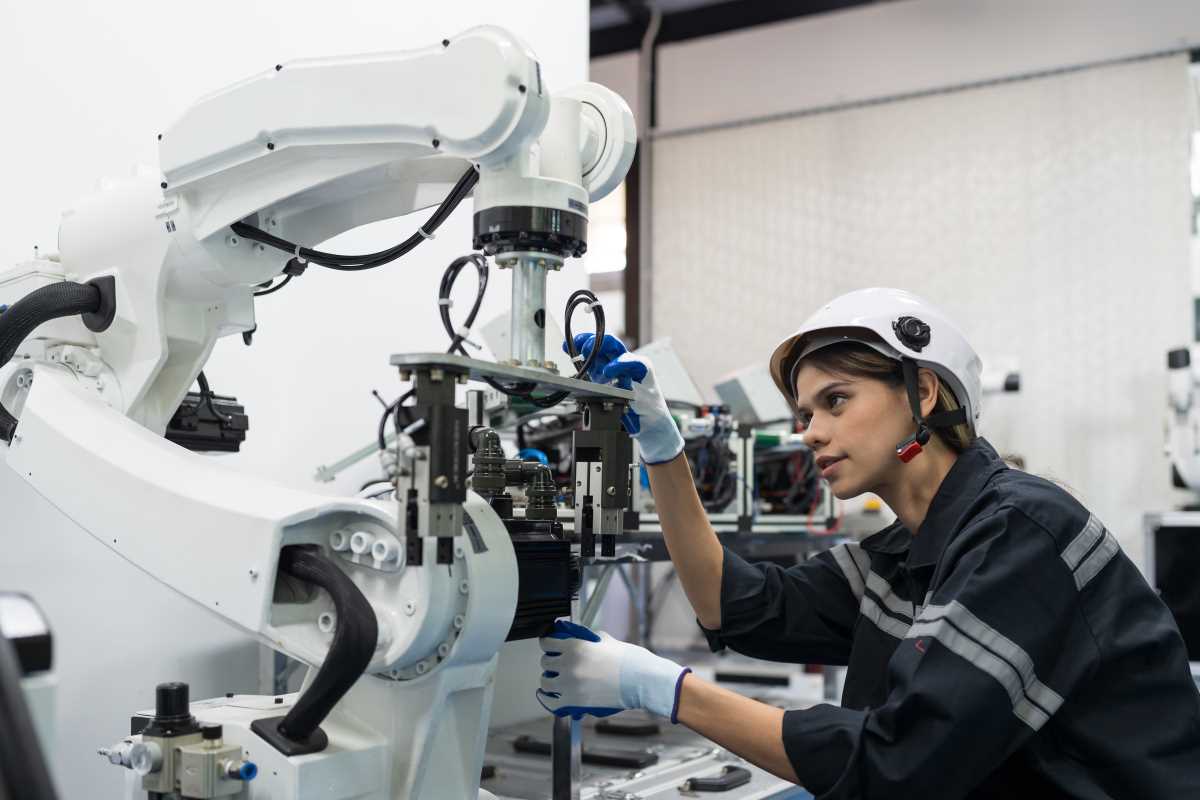Robots are no longer restricted to science fiction; they are a core part of modern industry, from manufacturing lines to surgical suites. For automation experts already in the field, the next career step often involves leading the design and implementation of these complex systems. An advanced degree in robotics can provide the specialized knowledge needed to move from operating automated systems to inventing them. These programs go beyond basic programming and mechanics, diving deep into artificial intelligence, machine learning, and robot design.
Why Pursue an Advanced Degree in Robotics?
You might already have a successful career in automation, so why go back to school? An advanced degree offers a level of expertise that is difficult to gain through on-the-job training alone. These programs provide a deep theoretical understanding of the principles that govern modern robotics. You will learn the complex math behind robot motion (kinematics), the science of how robots perceive their environment (computer vision), and the programming behind their decision-making (artificial intelligence).
This deeper knowledge allows you to move beyond implementing existing technology and start creating new solutions. It opens doors to senior-level roles, such as Robotics Engineer, Machine Learning Specialist, or even Chief Technology Officer at a robotics startup. The financial return is also significant, with many robotics engineers earning salaries well over six figures.
Key Skills You Will Develop
- Advanced Kinematics and Dynamics: The mathematics of how robots move and interact with forces.
- Machine Learning and AI: The ability to create robots that can learn from data and make intelligent decisions.
- Computer Vision and Perception: How to program robots to "see" and interpret the world around them using sensors and cameras.
- Control Systems Theory: The principles behind making robots move precisely and reliably
- Robot Design and Prototyping: The engineering skills to design and build new robotic hardware.
Top Master's Programs for Robotics
A Master of Science in Robotics is often the most direct path to advancing your career. These programs typically take one to two years and offer a concentrated dose of advanced coursework and hands-on projects.
Carnegie Mellon University (CMU) - Master of Science in Robotics
CMU is widely considered the world leader in robotics education. Its Robotics Institute is a legendary hub of innovation. The M.S. in Robotics program is incredibly rigorous and research-focused. Students work alongside top faculty on cutting-edge projects, from autonomous vehicles to medical robots. This program is ideal for professionals who want to push the boundaries of what is possible in robotics.
University of Pennsylvania - Master of Science in Engineering (MSE) in Robotics
Penn's GRASP (General Robotics, Automation, Sensing & Perception) Laboratory is another world-class research center. The master's program here is known for its interdisciplinary approach, combining mechanical engineering, electrical engineering, and computer science. The curriculum is flexible, allowing students to specialize in areas like AI, control systems, or robot design.
University of Michigan - Master of Science in Robotics
Michigan's program is unique because it is a dedicated robotics department. This creates a strong, cohesive community of students and faculty. The program offers state-of-the-art facilities, including a three-story fly zone for drones and a robotics proving ground for autonomous cars. It has a strong focus on collaboration and project-based learning.
The Ph.D. Path: For Aspiring Innovators and Researchers
For those who want to lead academic research or head up an R&D department at a major tech company, a Ph.D. is the ultimate credential. A Ph.D. in robotics is a deep dive into a very specific area of the field. It is a multi-year commitment that involves taking advanced courses and, most importantly, conducting original research that contributes new knowledge to the field.
The Ph.D. process involves working closely with a faculty advisor to identify a research problem, design experiments, and publish your findings in academic journals. This path is not for everyone. It requires immense self-discipline, creativity, and a passion for solving problems that may take years to crack.
Is a Ph.D. in Robotics Right for You?
- You are passionate about inventing new technologies, not only applying existing ones.
- You enjoy deep, focused research and are comfortable with long-term projects.
- Your career goal is to become a university professor or a lead research scientist in industry.
- You have a strong academic background and enjoy the process of writing and publishing research papers.
Essential Curriculum in a Robotics Graduate Program
Regardless of the specific program, any top-tier advanced degree in robotics will cover a core set of subjects. These courses provide the building blocks for creating intelligent machines.
- Mathematical foundations. You will take advanced courses in linear algebra, calculus, and probability, as these are the languages used to describe robot behavior.
- You will then move into core robotics topics.
- A course in kinematics teaches you how to model the geometry of robot arms and calculate their movements.
- Control systems courses teach you how to design algorithms that make robots perform tasks with precision and stability.
- AI and machine learning are where you’ll learn to implement algorithms that allow robots to learn from experience
- You will also study computer vision, which involves processing data from cameras and sensors to help a robot understand its surroundings.
Gaining Hands-On Experience
Theory is important, but robotics is an applied field. The best graduate programs provide ample opportunities to get your hands dirty. Project-based courses are a staple of robotics education. You will work in teams to build and program robots to perform specific tasks, such as competing in a robot soccer match or autonomously navigating a maze.
Many programs have strong ties to the industry and facilitate internships at robotics companies. An internship is a fantastic way to apply your academic knowledge to real-world problems and build your professional network. It can often lead directly to a full-time job offer upon graduation. Research is another form of hands-on experience, especially for Ph.D. students. Working in a lab gives you access to state-of-the-art equipment and mentorship from leading experts.
 (Image via
(Image via





